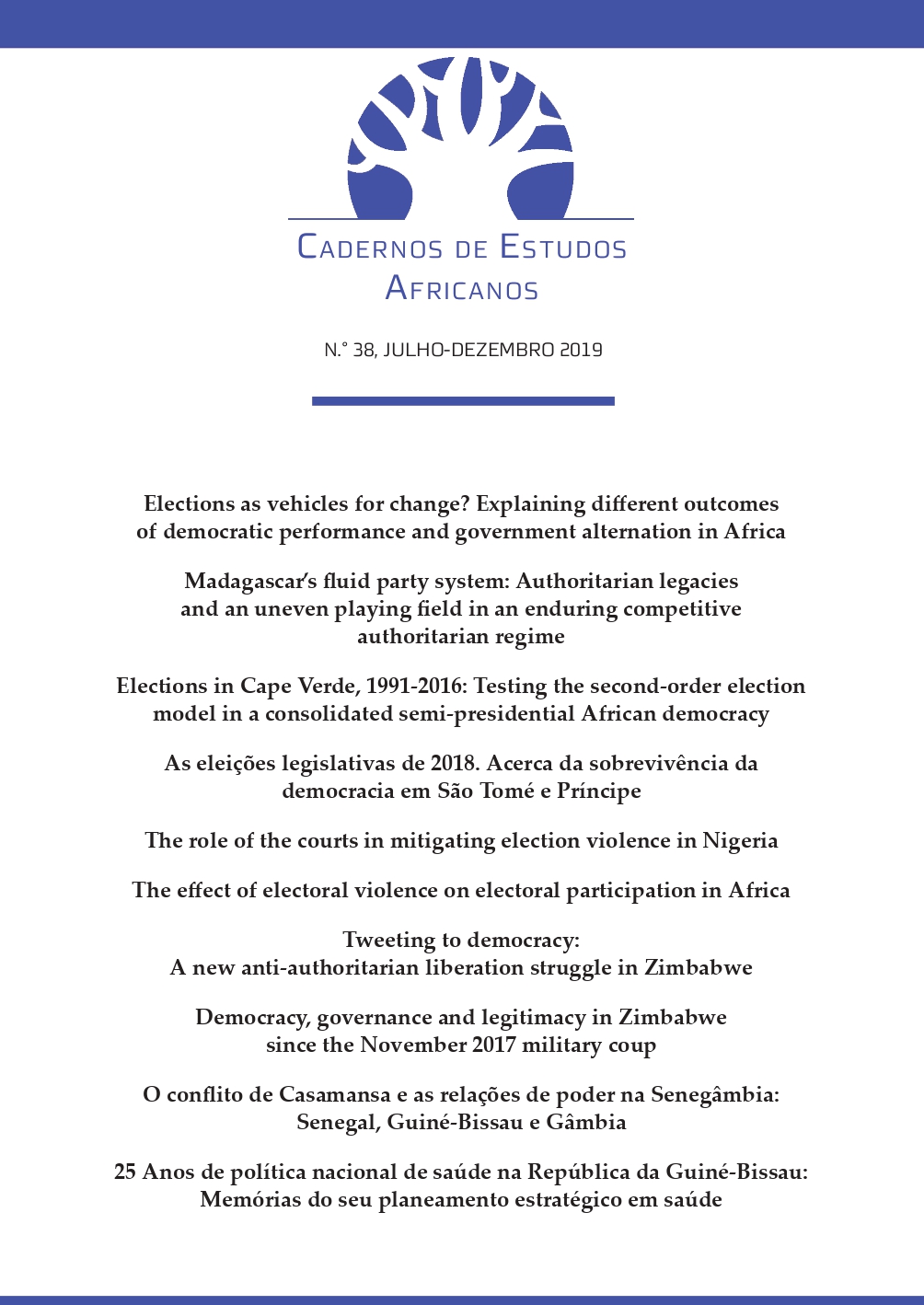Introduction
DOI:
https://doi.org/10.4000/cea.4224Abstract
Some thirty years ago, Benin’s Conférence des Forces Vives de la Nation paved the way for the end of Mathieu Kérékou rule and inaugurated a new democratic order in country (Banégas, 1995; Bratton & van de Walle, 1997). The successful transition in Benin pioneered the wave of democratisation in Africa and the demise of formal one-party rule in most countries. In the backcloth of domestic and international pressures, incumbent authoritarian parties embarked in significant liberalisation reforms, from the early 1990s-on, leading up to landmark constitutional revisions, and the introduction of laws allowing the formation of political parties, and the realisation of multiparty elections, for the first time ever or in decades. By mid-1990s virtually all countries had organised a round of competitive multiparty elections (Bratton, 1998; Bratton & van de Walle, 1997).
Additional Files
Published
Issue
Section
License

This work is licensed under a Creative Commons Attribution-NonCommercial-ShareAlike 4.0 International License.
I authorize the publication of the submitted article/review of which I am the author.
I also declare that this article is original, that it has not been published in any other way, and that I exclusively assign the publication rights to the journal Cadernos de Estudos Africanos. Reproduction of the article, in whole or in part, in other publications or on other media is subject to the prior authorization of the publisher Centro de Estudos Internacionais do Iscte - Instituto Universitário de Lisboa.

